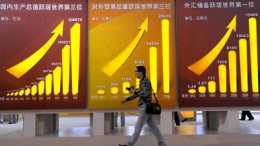America’s economic unhappiness
Two thirds of Americans feel suspicious or skeptical about their country’s economic situation. According to a Gallup poll, only 23 percent said they were satisfied with the way things are going in the United States, down from a 28 percent satisfaction rate last month. Three months before the presidential elections, figures and sondages are multiplying. We’ll certainly see numbers shift, popularity indexes soar and fall before the D-day, and both…





